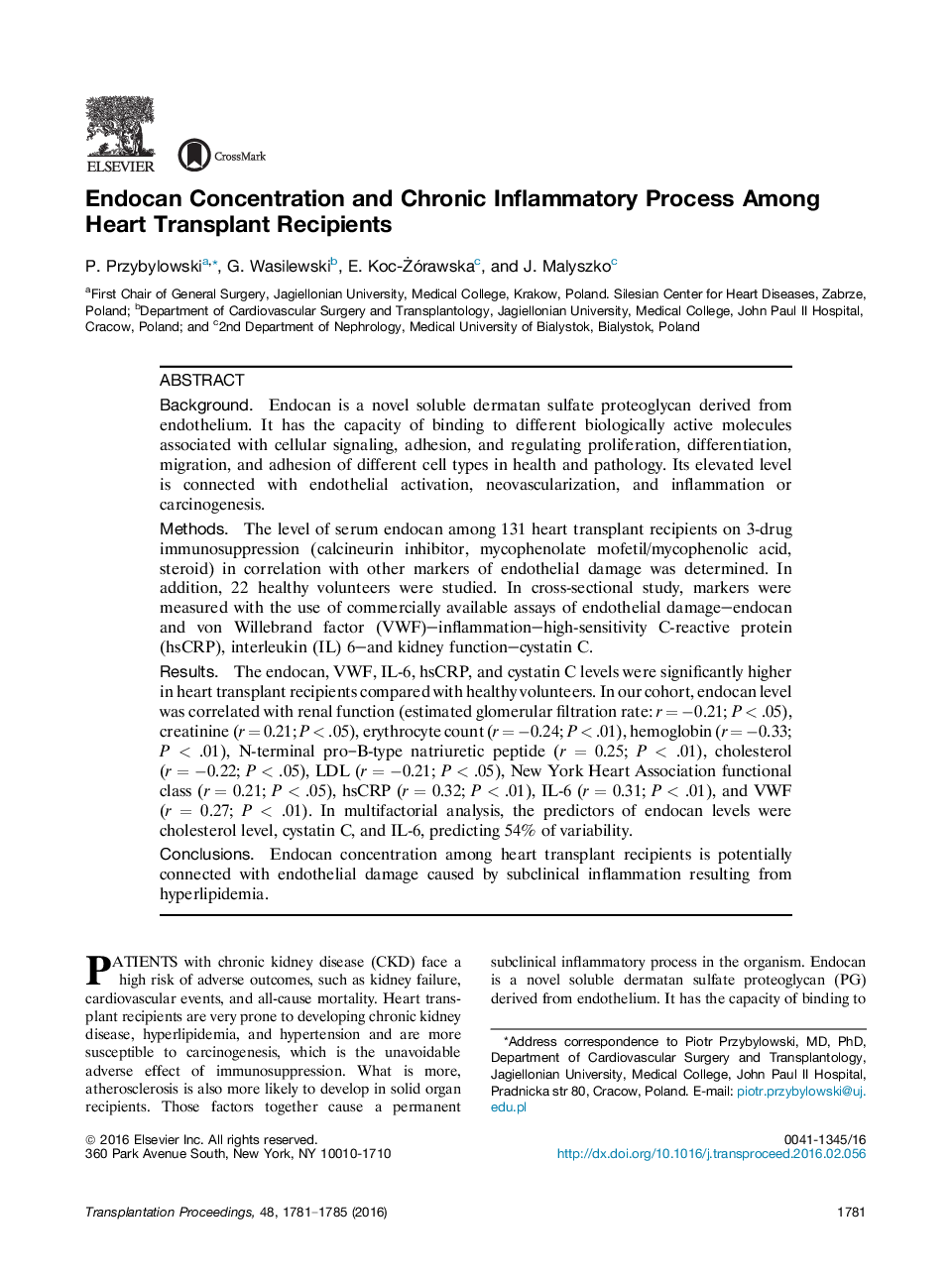| Article ID | Journal | Published Year | Pages | File Type |
|---|---|---|---|---|
| 4256118 | Transplantation Proceedings | 2016 | 5 Pages |
•Endocan concentration among heart transplant recipients is potentially connected with endothelial damage caused by subclinical inflammation resulting from hyperlipidemia, hypertension, and chronic kidney disease.•The endocan concentration among heart transplant recipients could be a marker of the beginning of a pathologic process such as kidney function deterioration, graft rejection, infection/inflammation, hypertension, or tumor progression.•It could serve as a screening marker and a trigger to begin deeper diagnosis of those pathologic states most commonly found in the group of heart recipients at different times after transplantation.
BackgroundEndocan is a novel soluble dermatan sulfate proteoglycan derived from endothelium. It has the capacity of binding to different biologically active molecules associated with cellular signaling, adhesion, and regulating proliferation, differentiation, migration, and adhesion of different cell types in health and pathology. Its elevated level is connected with endothelial activation, neovascularization, and inflammation or carcinogenesis.MethodsThe level of serum endocan among 131 heart transplant recipients on 3-drug immunosuppression (calcineurin inhibitor, mycophenolate mofetil/mycophenolic acid, steroid) in correlation with other markers of endothelial damage was determined. In addition, 22 healthy volunteers were studied. In cross-sectional study, markers were measured with the use of commercially available assays of endothelial damage—endocan and von Willebrand factor (VWF)—inflammation—high-sensitivity C-reactive protein (hsCRP), interleukin (IL) 6—and kidney function—cystatin C.ResultsThe endocan, VWF, IL-6, hsCRP, and cystatin C levels were significantly higher in heart transplant recipients compared with healthy volunteers. In our cohort, endocan level was correlated with renal function (estimated glomerular filtration rate: r = −0.21; P < .05), creatinine (r = 0.21; P < .05), erythrocyte count (r = −0.24; P < .01), hemoglobin (r = −0.33; P < .01), N-terminal pro–B-type natriuretic peptide (r = 0.25; P < .01), cholesterol (r = −0.22; P < .05), LDL (r = −0.21; P < .05), New York Heart Association functional class (r = 0.21; P < .05), hsCRP (r = 0.32; P < .01), IL-6 (r = 0.31; P < .01), and VWF (r = 0.27; P < .01). In multifactorial analysis, the predictors of endocan levels were cholesterol level, cystatin C, and IL-6, predicting 54% of variability.ConclusionsEndocan concentration among heart transplant recipients is potentially connected with endothelial damage caused by subclinical inflammation resulting from hyperlipidemia.
